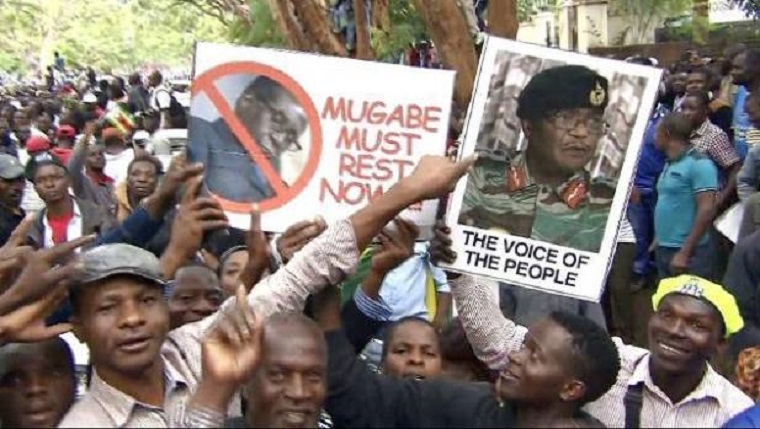Zimbabwe’s opposition which has been complaining about being excluded from President Emmerson Mnangagwa’s government should in fact be grateful because that would have placed them in a serious dilemma.
The International Crisis Group says the opposition would have had to grapple with whether to contribute to Mnangagwa’s national economic recovery programme or concentrate on the 2018 elections.
The ICG may have missed the point, however, because the opposition was looking at a transitional government of national unity that would last five to six years.
Mnangagwa, who is serving the remainder of former president Robert Mugabe’s term, however, wants his own mandate and has said that the elections will be held as scheduled and will be free and fair.
In its repot entitled: Zimbabwe’s military-assisted transition and prospects for recovery, the ICG says Mugabe’s unexpected departure has placed the opposition in uncharted territory.
“Before these recent developments, most analysts gave the opposition – unable to exploit the worsening socio-economic conditions or ZANU-PF’s debilitating divisions – little chance of winning. Now, it has a new opportunity to find its purpose as well as a convincing course of action,” the report says.
“Prospects are uncertain. At this juncture, the opposition is likely to head into the elections divided and massively outgunned.
“It is expected to field half a dozen presidential candidates. The main opposition coalition grouping, the Movement for Democratic Change (MDC) Alliance, led by Morgan Tsvangirai, was launched this past August but has struggled to attract many smaller parties and faces acute resource shortages.
“Furthermore, Tsvangirai’s health problems have kindled internal succession struggles. He may not be well enough to lead an election campaign next year.”
The report adds: “Had Mnangagwa invited the opposition to participate in the new government, it would have faced a serious dilemma: whether to contribute to his national economic recovery program or concentrate on the 2018 elections. Their exclusion from the new government means they can concentrate on regrouping and preparing for the polls.”
The ICG says the opposition should back civil society demands for core electoral reforms. These include:
- drafting and passing a comprehensive electoral law consistent with the 2013 constitution that guarantees the independence of the electoral committee and prevents government interference in election management;
- extending the voter registration process and ensuring there is a transparent and comprehensive verification process to develop a credible voters’ roll;
- enhancing the independence of the electoral commission;
- promoting a more conducive political environment to encourage participation and address violations, and;
- allowing more and longer-term voter observation missions.
(454 VIEWS)
